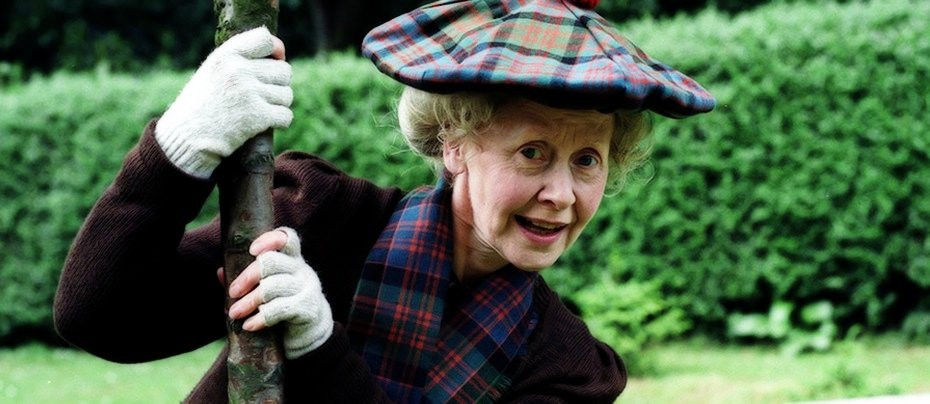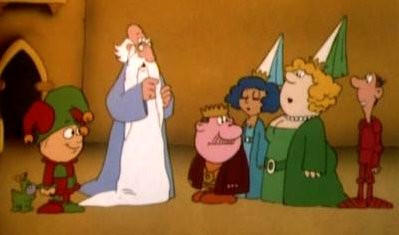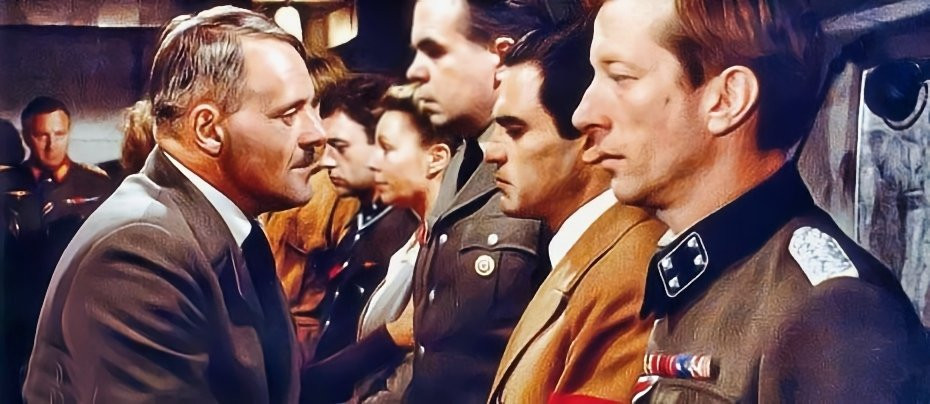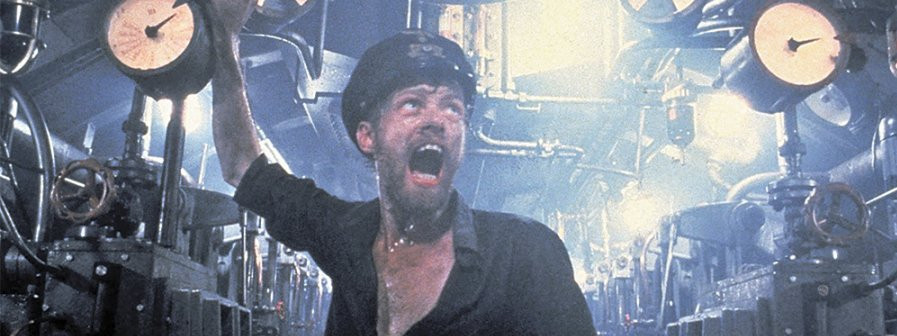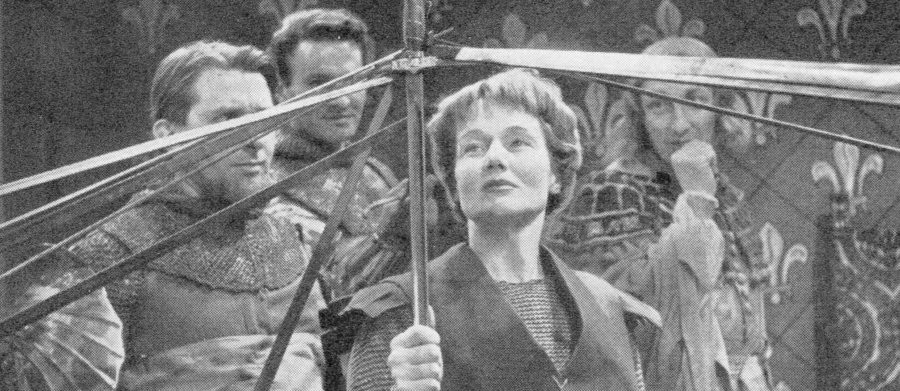
A.D. Anno Domini
1985 - Usa ItalyThe British have always been suspicious of intelligence and have disliked showing off, so the French notion of the "public intellectual" - someone who is well known for being self consciously and conspicuously clever - has never caught on here. The closest we have ever come to it is Anthony Burgess.
Between writing novels, composing music, and studying languages, Burgess helped pay the rent by contributing to the scripts for three highly successful Biblically-themed "miniseries" which, in retrospect, are sometimes viewed as a trilogy: Moses the Lawgiver; Jesus of Nazareth; and A.D. He wrote a long poem and two novels to "tie in" with the three productions, and they are themselves considered, in retrospect, a trilogy in their own right.
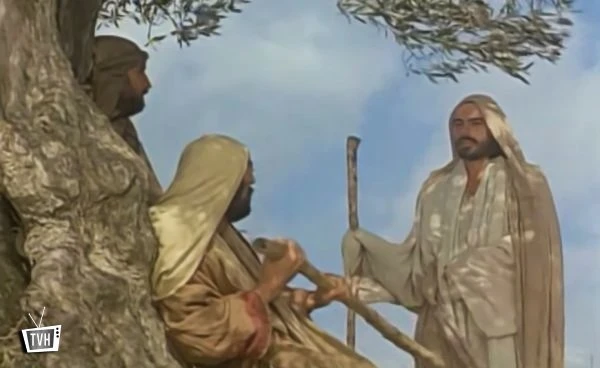
While 'Moses' and 'Jesus' are obviously straightforward biographies of two specific individuals, A.D. is structurally a more ambitious concept involving multiple character and story arcs in three main strands. Two great real life dramas played out in the middle decades of the First Century, the fall of the Julio-Claudian Imperial house in Rome as described by the historians Tacitus and Suetonius, and the early years of Christianity as described in the Book of Acts. Although the former impacts on the latter, they are essentially separate stories - a fact that has tempted many later authors to try to link them. Some have been very successful, like the novels 'Quo Vadis' by Henryk Sienciewicz and 'The Robe' by the Rev Lloyd C Douglas, both of which became major Hollywood films. Following this well trodden path, Burgess seeks to link the two main strands by inventing a third in the form of a group of fictional characters who witness both.
Of these three strands, one is rather good, one is interesting, and the third is dull. The great weakness of the project is that the switching back and forth between them undermines the potential for emotional investment of the audience in any of the three.
The best of the three is the Book of Acts strand. Hollywood has usually portrayed the Early Christians as plaster saints, painfully perfect, irritatingly virtuous, with their eyes fixed permanently on the middle distance. In fact, the letters of the Apostle Paul suggest they could sometimes be a rambunctious lot. While there are a few of the Hollywood cliches in A.D., for the most part it actually succeeds in making the leading figures of the Primitive Church look like recognisably real human beings.
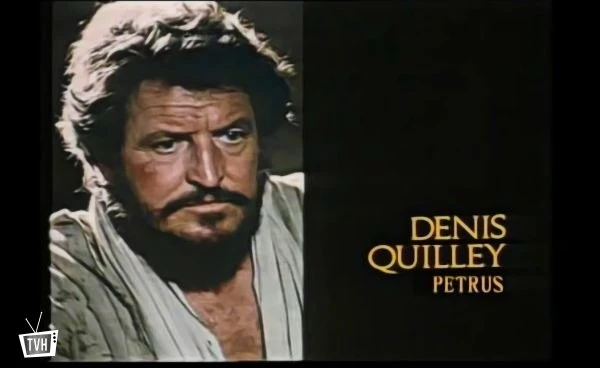
Denis Quilley is an ebullient Peter, credible because he resembles the sort of cheerful preacher who can often be found in the more dynamic denominations today. Energetic, a natural leader, and firm in his faith, he nevertheless sometimes surprises himself by some of the things he experiences, says, and does. The performance stays in the mind and one cannot help thinking the original must have been a lot like this. He has a great double act with Davyd Harries as an agreeably curmudgeonly Thomas, one of those characters who seems to want to be awkward.
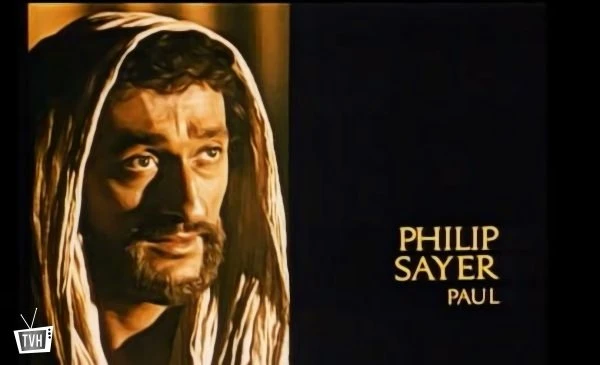
Philip Sayer, a great talent lost too soon, gives an intelligent interpretation of Paul. Even in his early days as Saul the Persecutor of Christians, he is shown as reasonable and compassionate in his motivation. The implication is that his Conversion on the Road to Damascus was less a change of personality than of purpose and priorities. The scenes soon after that, in which he is regarded with suspicion because he comes across as overeager, are especially perceptive. Yet Paul is allowed to mature, and Sayer's naturalistic speaking of the words of his "Hymn to Love" while in prison is quite beautiful. The jailor's all too human reaction may rise a smile.
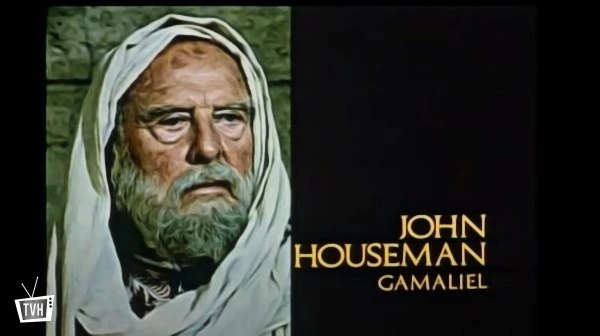
John Houseman, Orson Welles' producer at the Mercury Theatre, and then, unexpectedly, a stately presence on screen in his later years, is perfectly cast as the great Voice of Reason, Gamaliel. The leading Pharisee scholar of his generation, Gamaliel gets a positive write up in the Book of Acts, despite his not being a Christian himself as far the most ancient sources suggest, for his common sense argument against religious persecution: if an idea is not from God, it will not stand; if it is from God, nothing can stand against it.

Sadly, this is one of many bits of the New Testament that has often been ignored since then. It is therefore also a refreshing change to see the Jewish High Priest Caiaphas, usually a pantomime villain, portrayed as calm, open to reason, and motivated solely by the religious and physical welfare of his people. It is possible that he regretted handing Jesus over to the Romans for execution because there is no suggestion in our sources that he ever considered doing the same to the Apostles.
The actor playing Jesus after the Resurrection is the only weak link in the casting of this strand, not because of any fault in his performance but because more recent viewers might be struck by his resemblance to Russell Brand, which rather undermines any sense of awe.
The second strand of A.D., the story of the Julio-Claudian Imperial house over in Rome, is also undermined by a problem not of its own making. Only a few years earlier, the classic BBC adaptation of Robert Graves' novel I, Claudius became the definitive version of the same events and A.D. is bound to suffer by comparison.
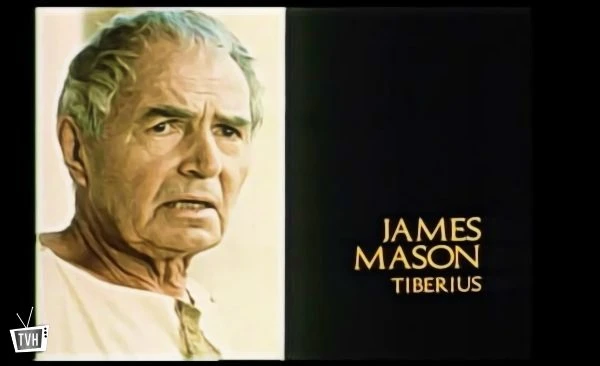
Yet, if anyone who has seen I, Claudius can put it from their minds for a few minutes and judge A.D. on its own terms, there is much to commend in it. Top of the list is James Mason, who plays Tiberius, undisputed ruler of the Roman world, as a peevish, frightened old man. This is how he seems to have been towards the end, even if it is unfair not to show at least some remnants of the man who, in his prime, had been one of Rome's greatest soldiers of all time.
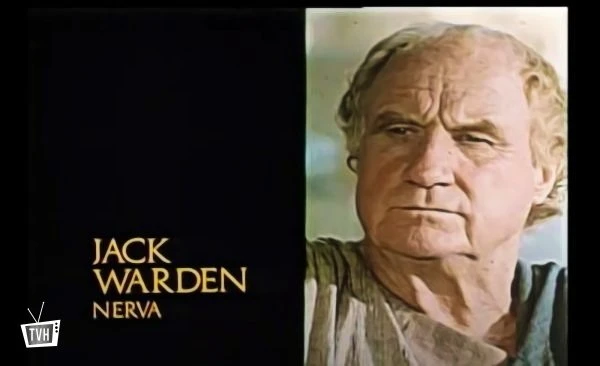
For the most part, the scenes in Rome are pretexts for cameos by familiar faces between jobs. Some do surprisingly well. American tough guy actor Jack Warden is not obvious casting for Tiberius' philosophical friend Nerva but turns out to be oddly convincing. Jennifer O'Neill's Messalina looks interesting and it is a pity that the part was underwritten. The same can be said of several of the female roles.
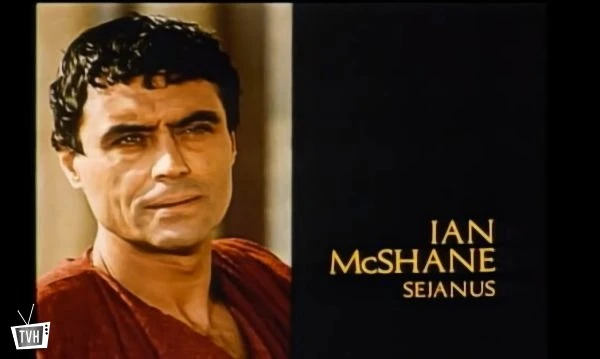
Ian McShane, who was Judas in Jesus of Nazareth, is credible as the unscrupulous Praetorian Prefect Sejanus, whose villainy is masked behind a plausible manner: one can understand how this man rose to power in the first place. Richard Kiley, the distinguished American singer and stage actor (the original 'Man of La Mancha'), and later a frequent star of "miniseries" and "television movies," is quite brilliant as Claudius. It is not his fault that Sir Derek Jacobi was even better in the BBC version, but Kiley is brave to point out that there are less sympathetic aspects of the scholar-Emperor that Graves and Jacobi downplayed.
The third thread, the story of a fictional Jewish brother and sister that links the other two, is perfunctory and uninvolving, even if their final scenes are not without emotional impact.
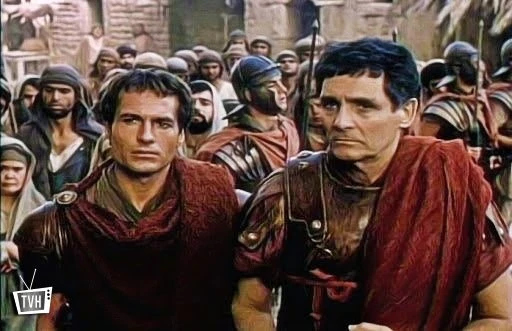
On the credit side of the ledger, Lalo Schifrin abandons his trademark jazz scoring for sub-Classical Miklos Rozsa orchestral to good effect. Enrico Sabbatini's costumes are, as ever, spectacular, and generally accurate, apart from some tunics being on the short side as tends to happen in Roman themed films where the producers want to show off actors' legs. The location work feels wholly authentic and the sets are wonderful, especially the Temple of Jerusalem and the Roman Forum. As often happens, considerable research seems to have gone into details like the precise layout of the Forum and the conduct of a Roman wedding, which only makes it all the more irritating when there are obvious historical errors in the script.
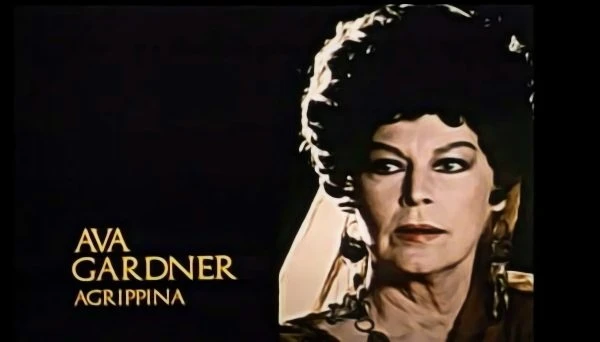
That script is a strange combination of Hollywoodisms and fidelity to the original sources, with some profound reflections thrown in, presumably by Burgess, since most are in his more sophisticated novel of the story, titled 'The Kingdom of the Wicked.'
In the end, the script's biggest problem is conceptual. It tries to do too much. We do not need three threads. The story of how Early Christianity not only survived against the odds but flourished is a good one. It is literally a mystery: how did a despised sect within a despised minority religion move on from the humiliating public execution of its Founder to become such a force that it took over the Roman Empire within three centuries? In its believable portrayals of Peter and Paul, A.D. begins to provide part of the answer to that question.
This story did not need the additional glamour of the scenes in the Roman Imperial House or the soap opera of the fictional characters. It is positively annoying when, for example, a reverential treatment of the potentially difficult scene of the Apostles receiving the Holy Spirit at Pentecost is intercut with an imaginary rescue.
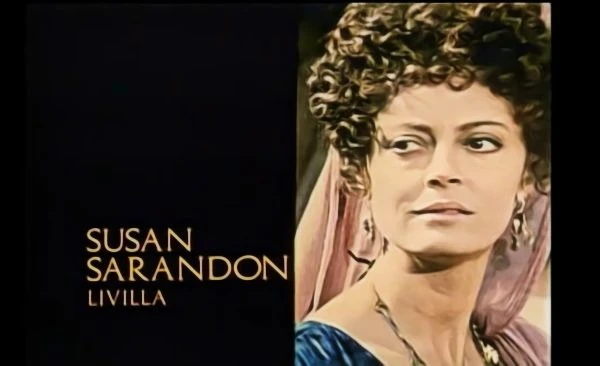
The production should have concentrated more on what it got right, turning the Early Christians into real people. It would have been better to spend more time getting to know some of the other Apostles as individuals and the relationships between them. More of the 'Odd Couple ' bond between Peter and Thomas might have been positively fun.
There remains a big gap in the market for telling this aspect of the story in its entirety. There is enough raw material in the Book of Acts for a "miniseries," perhaps more, on its own. Until then, a third of A.D. is the best we have and it gives some notion of how a better could yet be made.
Review by John Winterson Richards
John Winterson Richards is the author of the 'Xenophobe's Guide to the Welsh' and the 'Bluffer's Guide to Small Business,' both of which have been reprinted more than twenty times in English and translated into several other languages. He was editor of the latest Bluffer's Guide to Management and, as a freelance writer, has had over 500 commissioned articles published.
He is also the author of ‘How to Build Your Own Pyramid: A Practical Guide to Organisational Structures' and co-author of 'The Context of Christ: the History and Politics of Rome and Judea, 100 BC - 33 AD,' as well as the author of several novels under the name Charles Cromwell, all of which can be downloaded from Amazon. John has also written over 100 reviews for Television Heaven.
John's Website can be found here: John Winterson Richards
Books by John Winterson Richards:
Seen this show? How do you rate it?
Seen this show? How do you rate it?
Published on December 24th, 2020. Written by John Winterson Richards for Television Heaven.




